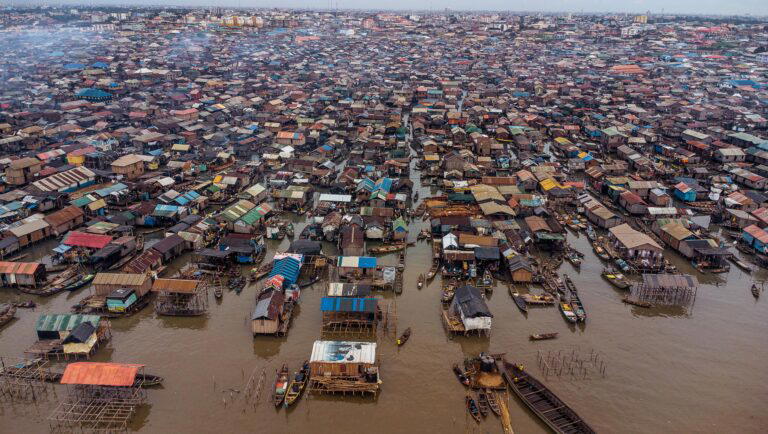
As a local zoning commissioner, I have spent countless hours shaping housing policies and open space plans — but I never imagined how closely these efforts would align with what I experienced at COP29 in Azerbaijan. I had the opportunity to observe throughout week two, mainly in the Blue Zone, official proceedings that would shape the next decade of global financial obligations for climate change. Although worlds apart in scope, sitting in the negotiation room as an observer to amend articles on my final day in the Blue Zone felt surprisingly familiar. It reminded me of my work back home in South Windsor, where I often debate and advocate for changes to language on my own commission.
During this journey, I found myself constantly drawing comparisons to home. Before this trip, I had never traveled outside the country — or even been on a plane — until I left the States for a week for my flight to Azerbaijan. The mountains, the city, the infrastructure — I found myself comparing them to what I knew, wondering why they looked the way they did. I was struck by how clean Baku was as a city, compared to what I knew in the United States. I admired the thoughtful infrastructure dedicated to pedestrian safety, the accessible and plentiful modes of transportation, and how they had preserved the old part of the city for tourism — something we often fail to do in the United States. I only encountered friendly faces on my travels, and when I interacted with locals, they would always ask me what the United States was like and if it was as dangerous as many make it out to be. At that moment, it was a wake-up call. It gave me a new sense of urbanism that we at home have failed to protect our very own.

One of the most powerful lessons I have taken away from COP29 is the art of storytelling as a tool to advance policy. While data and facts are essential, something I often focus on, they frequently fail to connect on an emotional level. People support what they can relate to, and storytelling bridges that gap, turning abstract policies into palatable realities. An example I have come up with is rather than sharing a percentage or statistic supporting any argument to incorporate roundabouts in a suburban community, create a story of what could happen. Talk about feeling of safety and the potential impact for school children when increasing safety on our roads. That argument alone has the potential to win over parents, and most likely, the majority of the room. During my time at COP29, I observed how presenters used narratives to humanize complex challenges and inspire action. Whether it was a story about a community transformed by active transport or a personal anecdote highlighting the real-world impact of climate policies, these stories brought the issues to life. It became clear to me that storytelling is not just a skill but a necessity for effective leadership.
As of writing this, I know I am nearing the end of a chapter in my life as a student at UConn. Truthfully, I do not know what the next page looks like. But I do know the changes I want to carry forward with me. If I am truly committed to making an impact, both at home and globally, I must become more open to the many ways I can drive change. This was a once-in-a-lifetime opportunity to speak first-hand with leaders in the space. It would be foolish to squander advice that comes so rarely. There are only so many seconds in life to embrace and learn from these moments, and I hope to make the most of them.
Alan Cavagnaro is a Political Science and Urban and Community Studies major in the College of Liberal Arts and Sciences.




 One powerful event I attended was the People’s Plenary, themed “Pay Up, Stand Up: Finance Climate Action, Not Genocide,” which broadened my perspective on interconnected justice issues and further emphasized the need for financial action. The plenary featured speakers representing various groups, including indigenous communities, people with disabilities, and populations facing genocide. A mantra repeated throughout the event was that there is no climate justice without human rights; the correlation between these two causes is evident in the ongoing genocide and ecocide in Gaza. Israel’s genocide has killed over 45,000 Palestinians and displaced over 1.9 million people, and its ecocide has intentionally destroyed the natural environment across the Gaza strip. It is impossible to discuss plans of creating a sustainable future without addressing current conflicts, such as the genocide in Gaza, which are inherently unsustainable. Therefore, plenary speakers urged for a reallocation of funding from enabling genocide to supporting climate finance.
One powerful event I attended was the People’s Plenary, themed “Pay Up, Stand Up: Finance Climate Action, Not Genocide,” which broadened my perspective on interconnected justice issues and further emphasized the need for financial action. The plenary featured speakers representing various groups, including indigenous communities, people with disabilities, and populations facing genocide. A mantra repeated throughout the event was that there is no climate justice without human rights; the correlation between these two causes is evident in the ongoing genocide and ecocide in Gaza. Israel’s genocide has killed over 45,000 Palestinians and displaced over 1.9 million people, and its ecocide has intentionally destroyed the natural environment across the Gaza strip. It is impossible to discuss plans of creating a sustainable future without addressing current conflicts, such as the genocide in Gaza, which are inherently unsustainable. Therefore, plenary speakers urged for a reallocation of funding from enabling genocide to supporting climate finance.



